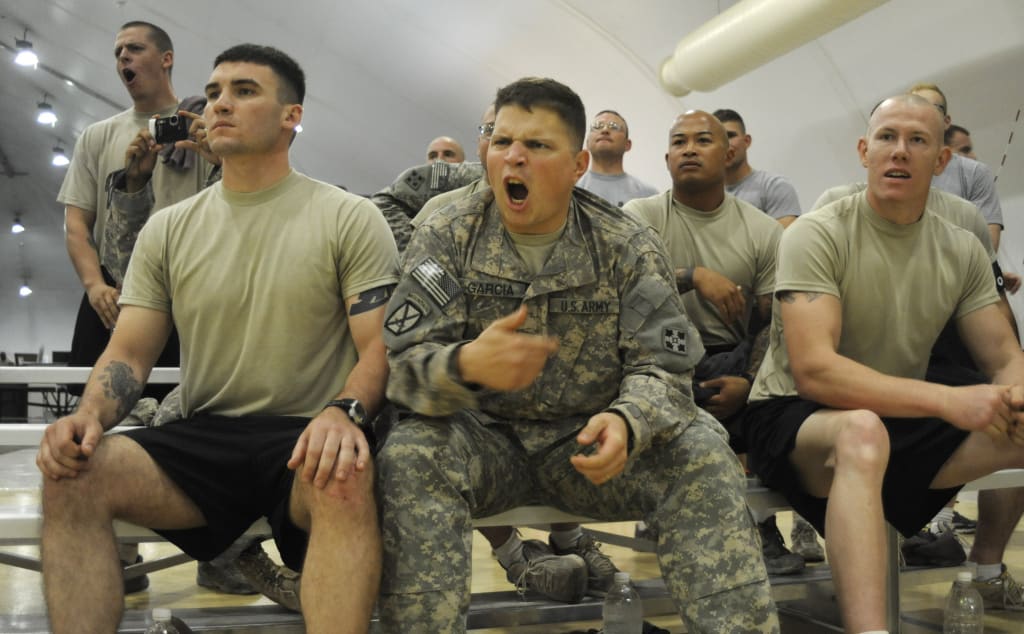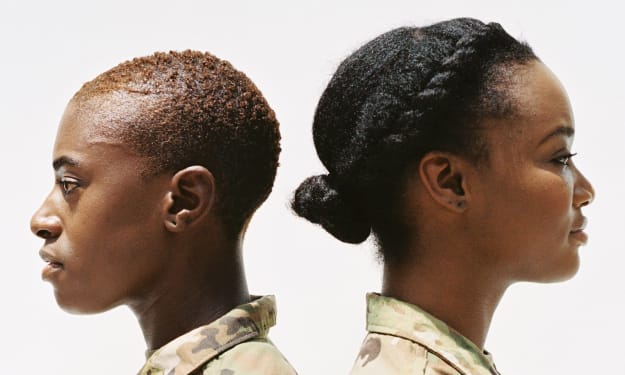Where Did the Term "Hooah" Come From?
The term "hooah" has an incredible importance to the Army, but what is its origin?

From the tales behind the term "hooah" to the meaning behind each cry, hooah has a lot of importance to the Army, and for good reason. The only thing is, the origin varies from person to person.
Like any age-old term, the origin is a bit hazy, and in the military stories get passed around like lice. So with that, we've got a couple different tales to tell. But what matters most is what the term means to those in the service, and what it brings to the culture of the military.
What is the acronym?
The term "hooah" is pronounced like so, but the acronym for the term is "HUA." So what does HUA stand for? Taught in basic training, HUA stands for "I Hear you, I Understand you, and I Acknowledge you."
Hearing, understanding, and acknowledging are three of the most important actions to provide to someone in the military, and much of the reason behind why hooah is still a prominent term in the service.
However, there is an alternative explanation of the acronym, with a less serious tone. HUA can also stand for “head out of ass,” or “head up ass,” which simply means that the call can be used to gain someone’s attention, as a less classy way to say “snap out of it.”
Though the meaning behind the acronym might not be universally shared, the way that is it used is very similar among the military, no matter the specifics of what H, U, and A stand for.
What is the true meaning?
What is the true meaning of the term "hooah"? Too many military men, the acronym meaning behind the term does not mean much. Instead, the purpose of how it is used, what scenario it is used in, and how they will respond to them, is the strength behind the call.
Used as an expression of high morale and confidence, the term is shouted by all tears of the service, from the Marines to the Navy SEALs. However, the term varies by service, with a similar meaning.
You can always guarantee to hear it in a low and barreling voice, usually loud and with pride. Some of the many meanings behind using this term would be "understood," "all right," "roger," "solid," "yes," "thank you," "you're correct," "amen," or even, "I don't know how to respond to that."
Once the ways you can use this word are understood, the culture of the service grows.
Maj. Gen. F.A. Gorden, Military District of Washington commander says this about hooah:
"It applies not only to the letter of what was said, but to the spirit of what was said."
What is the origin?

The origin of the term "hooah" is Vietnamese. This is because "vang" in Vietnamese means "yes." "Vang" is pronounced "u-ah."
So instead of responding with "yes" during the Vietnam War, American Army soldiers would say "u-ah" instead, after picking it up, which also transferred into being a battle cry. Americans often used Vietnamese expressions during the war, or even French terms interchangeably with English.
Though the term was originally pronounced "u-ah," it later was changed to "hooah," simply over time. This is another reason why hooah can be used to say "yes, okay, sure, that's right," or other affirmative terms.
And to complicate things even further, there is an alternative origin that many believe to be true as well. This story follows the plot of the battle cry coming for either a Turkish route or Russian. Adopted by the US Marines, the word that people would use instead of "hooray" was hooah, or even "hoosah." This can be attested to accents of the Northern troops, and just the evolution of the battle cry passed down.
Many civil war reenactments use the phrase "hoosah," specifically in the movie Gettysburg.
Who was the first?
We promise that this is the last origin story, but there is just one more behind who first uttered the term "hooah." The story goes that a Seminole tribal chief was the first to coin the term. And according to E. Kelly Taylor's book, "America's Army and the Language of Grunts: Understand The Army Lingo Legacy," her theory is that during the early 1800s, the Seminoles resided in Florida originated hooah.
This is because the tribal Chief Oseola was unable to get out a formal toast during a meeting with Army commanders. So instead, he told them, "Hooah!" and it stuck with the American soldiers. What might just be a rumor is still an incredibly interesting tale, and makes its rounds as a rumor behind the ever so popular battle cry.
What are the equivalents?
So we know that the army has coined the term "hooah" but what do the rest of the military have? Much like anything in the military, each brand has their own way of doing things, even battle cries. So instead of hearing "hooah" in the Navy, you'll hear, "hooyah!"
For the US Army Rangers, the term is "hoora," the United States Marine Crops and the United States Coast Guard both use to phrase "oorah," and for a 16th-century equivalent, "huzzah."
Much like the origin behind "hooah" doesn't matter much to the Army, neither do the variations between the different services. "Huzzah," "oorah," and "hooah" all capture the universal meaning of building morale, confidence, and verbal acknowledgment.
About the Creator
Adrian Scott
Horror-movie fan and wanna-be chef looking to travel the world.
Enjoyed the story? Support the Creator.
Subscribe for free to receive all their stories in your feed. You could also pledge your support or give them a one-off tip, letting them know you appreciate their work.






Comments
There are no comments for this story
Be the first to respond and start the conversation.